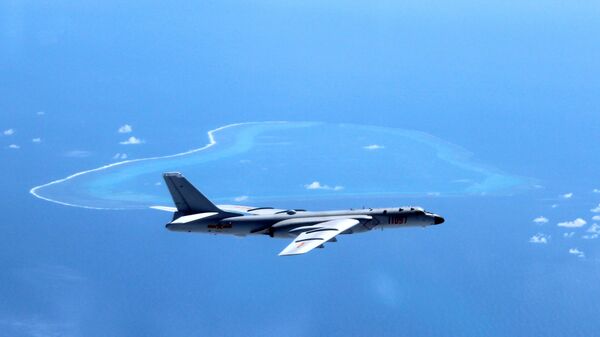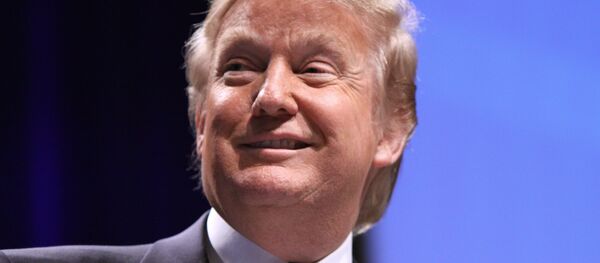Under Obama the US has carried out several so-called "Freedom of Navigation" patrols in the region, within what China sees as its Exclusive Economic Zone (EEZ).
Beijing claims most of the South China Sea as its territory, and in that belief it has undertaken construction projects there, building infrastructure on artificial islands.
Taiwan, Brunei, Malaysia, Vietnam, and the Philippines also make overlapping claims to territory in the South China Sea, with the latter taking its complaint against China to the Hague Permanent Court of Arbitration, which ruled in favor of Manila in July.
The South China Sea issue has been a source of tension between Washington and Beijing, and when he visited the G20 summit in China in September Obama sought to warn China that there will be "consequences" to "violating international rules and norms" in the South China Sea.
In a Twitter post, the US President-elect appeared to back Obama's approach to the issue, criticizing China for building "a massive military complex in the middle of the South China Sea."
Did China ask us if it was OK to devalue their currency (making it hard for our companies to compete), heavily tax our products going into..
— Donald J. Trump (@realDonaldTrump) 4 декабря 2016 г.
their country (the U.S. doesn't tax them) or to build a massive military complex in the middle of the South China Sea? I don't think so!
— Donald J. Trump (@realDonaldTrump) 4 декабря 2016 г.
For its part, China has said its construction has only civilian purposes, and includes plans to turn the Spratly Islands, which China calls the Nansha Islands, in the South China Sea into a tourist resort.
Vietnamese military expert, Major-general Lee Wan Keung, told Sputnik that Vietnam remains opposed to China's activities in the region. He added that US opposition was bound to continue under any US President, and Trump is no exception.
"In recent years China has built airfields, hangars and lighthouses on nine Spratly Islands, which belong to Vietnam. By creating this infrastructure, China is contravening resolutions from the UN, ASEAN, international documents like the United Nations Convention on the Law of the Sea, as well as violating its own commitments," Keung said.
"In particular, at a press conference in September 2015 Xi Jinping said that China will not militarize the Spratly Islands. The US administration is opposed to this, and this opposition will continue under any US Presidents, which Donald Trump is showing now," the Major-general said.
"Trump is determining for himself what international conflicts the US needs to continue participation in, which should be reconsidered and which should be scrapped from the list altogether," Mosyakov said.
"China is now the main rival of the US, and the South China Sea issue is a convenient pretext to put pressure on Beijing. China is building military infrastructure in the region, which causes discontent and opposition among its neighbors, and it plays into the hands of Washington."
"I think after Trump's inauguration American planes will be flying again to inspect the Spratly Islands, and American ships will enter waters which China considers to be its own," Mosyakov said.
The US broke off diplomatic connections with Taiwan after establishing them with Beijing in 1978, since Beijing considers Taiwan to be a province of China, not a different country.
On Saturday China said it had lodged a "solemn representations with the party concerned in the US," about the call.
"We urge the relevant party in the US to honor its commitment to the one China policy and the principles of the three joint communiqués, and properly deal with Taiwan-related issues in a discreet manner, so as to avoid unnecessary disruptions to the overall China-US relationship," the Foreign Ministry stated.





